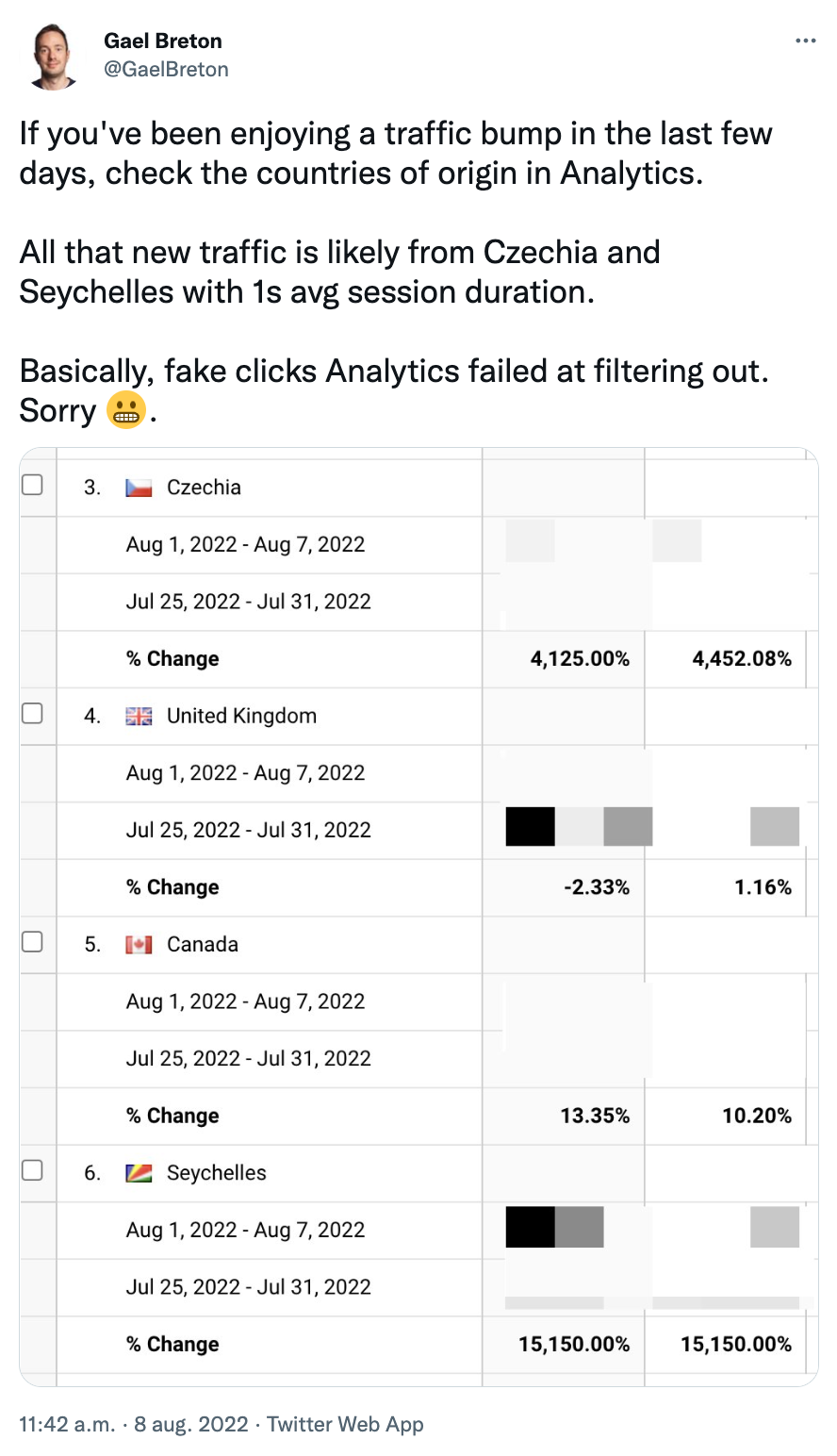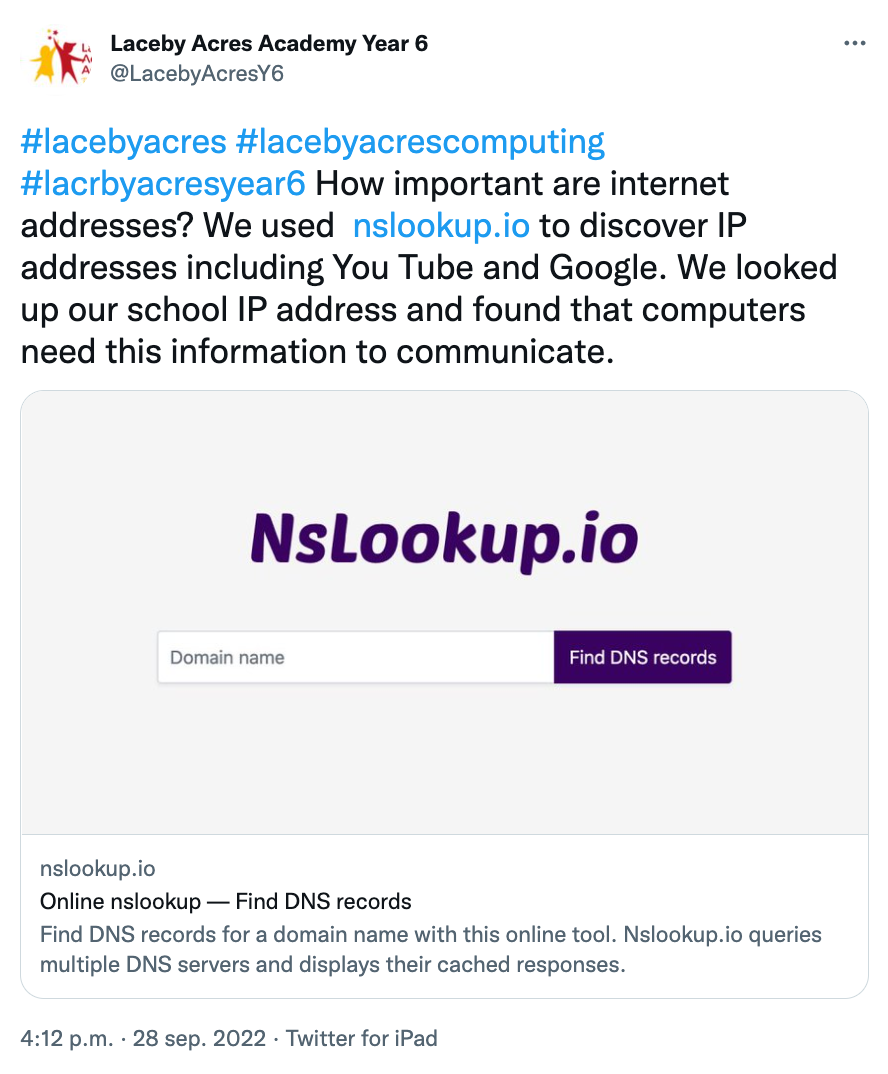The peculiar tale of the doubled revenue
Copy article linkI'm excited to find out what caused the increase in visitors on my site. It won't be long before I notice that all additional traffic comes from the UK. It started suddenly, and didn't seem to have any clear cause.
I remembered seeing a couple of tweets a couple of weeks ago, about bot traffic coming from specific countries. I figured I was being hit as well, so I activated the “I'm under attack” mode in Cloudflare.

Not much later the traffic died down, and I carried on.
The next day, around the same time, the same thing happened. I wasn't sure what was going on, as both Google's Search Console and Cloudflare identified the visitors as legitimate. I checked my ad revenue, and it had doubled.
“I'll take it."
It wasn't until a couple of days later that I dove a lot deeper to find out what was happening. I found some signs that it couldn't have been bots. And that these people were searching for DNS records for bbc.co.uk, youtube.com, minecraft.com more often than usual. I also found a couple of primary school websites in the logs.
And then I found it.
Hundreds of people were entering “Your school's website” on my site's search bar. Which must mean that there was a country-wide school assignment in the UK. It was telling kids to find the IP addresses of their school, as well as those of the BBC and YouTube. Kids (ages 10-11) are learning about DNS and IP addresses using my site.

I deactivated “I'm under attack” mode, and went back to work.
Later that month NsLookup got a significant boost in Google rankings. I can't help but think that it may have been caused by strong on-site signals (like bounce rate, and time on site) that Google collects through Chrome.
This just goes to show that you'll never know what will cause success or failure. You can only pick which dice you roll, and keep rolling them.
I'll hang around on Hacker News and Proggit today, so ask me anything.